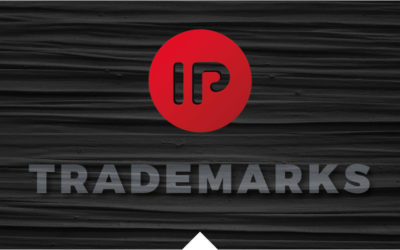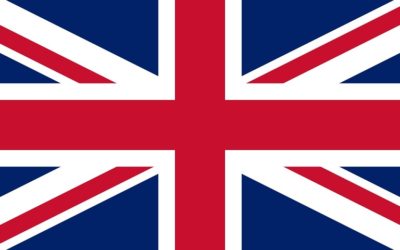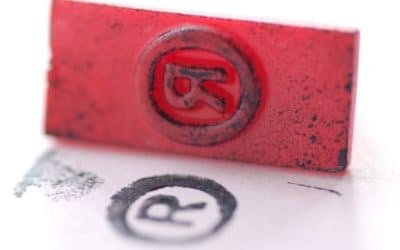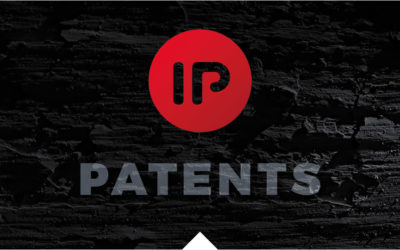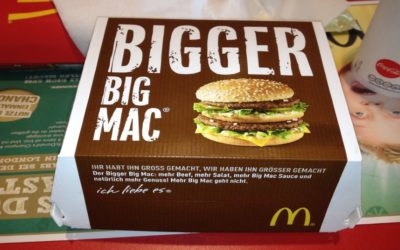You’ve registered your trade mark, you’re using it, and you believe that’s enough to maintain and enforce your rights? Yes… and no. Understanding trade mark cancellation A trade mark must be used within 5 years of its registration. In some countries, such as China or Mexico, this period is reduced to 3 years. However, even genuine and serious use isn’t enough if you can’t demonstrate its...
Nice Classification and similarity between products and services
The Nice Classification, used by most of countries worldwide, categorizes all products and services into 45 classes—34 for products and 11 for services. It is a fundamental tool of the International trademark system. However, an important clarification is necessary: the Nice Classification is an administrative structure, not a legal standard for determining the similarity between products or...
Countries of the International trademark system
The International trademark system provides a variety of centralized administrative procedures to protect and manage a trademark in one or several member countries of the Madrid system (Madrid Agreement and Madrid Protocol). The system of International registration of marks is administered by the International Bureau of the World Intellectual Property Organization (WIPO), based in Geneva,...
Inscripta expert for assessment of IP strategy
Inscripta selected by Bpifrance to perform assessment of intellectual property strategy and valuation of intangible assets The program is developed and hosted by Bpifrance, which describes itself as the French agency for innovation, delivering massive programs to innovative entrepreneurs, and which goal is to favour the growth of the French economy by helping entrepreneurs thrive. ...
Brexit is effective since 1st of January of 2021
As all of you probably know, the United Kingdom (UK) is no longer part of the European Union since the 1st of January of 2021. Brexit has a huge impact on intellectual property (IP) rights within the European Union (EU) and a lot of complex questions may arise. Below is a few pieces of information regarding the main aspects of how Brexit affects trademarks and designs. Registered EU trademarks...
Trademark revocation procedure before the French PTO
Available since April 1st, 2020 in France, the procedure for revocation of French trademarks (or French parts of international trademarks) allows the cancellation of trademarks which have, for some reasons, lost their ability to function as trademarks after being registered. Mostly similar to the opposition procedure, the application for revocation may be filed by any person (there is no...
Trademark invalidation procedure before the French PTO
Available since April 1st, 2020, the procedure for cancellation of French trademarks (or French parts of international trademarks) allows the invalidation of registered trademarks. The request for a declaration of invalidity may be based on absolute grounds (the mark is not valid and should not have been registered by INPI, the French PTO) or on relative grounds (the mark infringes earlier...
New administrative procedure for cancellation of French trademarks (revocation or declaration of invalidity)
The administrative procedure for revocation or declaration of invalidity already exists for EU trademarks before the EUIPO but is entirely new with respect to French trademarks before the French Patent and Trademark Office (INPI). Such a procedure, formally comparable to the opposition procedure, now falls under the exclusive jurisdiction of the INPI if this is: An application for revocation of...
Abrogation of French procedure of early trademark renewal
Until the end of 2019, it was possible to file a new trademark application associated with the early renewal of another trademark in order to adapt one’s trademark to new features. To our knowledge, this specific procedure did not exist in any country but in France. The procedure was mostly used to protect new logos of already registered trademarks. You could indeed associate a new trademark...
New official fees for trademarks in France
Governmental decree of 9 December 2019 is one of the latest measures implementing in France Directive (EU) 2015/2436 of the European Parliament and of the Council of 16 December 2015 to approximate the laws of the Member States relating to trade marks (see our article here), consistent with the new French legislation on trademarks (see our article here). The new system is in line with the...
New French regulations relating to trademarks
The “PACTE” Law provides new important regulations as regards patent (see our article here), but also initiates the transposition of the famous “trademark Package” (detailed in our dossier here) into French law following the Directive (EU) 2015/2436 of the European Parliament and of the Council of 16 December 2015 (see our article here). On November 13, 2019, was issued Government order No....
Modification of the limitation period for infringement proceedings
According to new Article L.716-5 of the French Intellectual property Code, “trademark infringement action is limited to 5 years from the day on which the holder of a right knew or should have known the last fact enabling him to exercise it”. This Article corresponds to Article L.615-8 for patent infringement actions (see our article here) and to Article L.521-3 for infringement actions related...
IP protection for recipes and culinary creations in France?
Whereas European case law considers that a taste of food cannot be protected by copyright (see our article here), a new Intellectual Property title could be created to protect culinary creations: the culinary creation certificate. This is the purpose of a law proposal introduced on April 30, 2019, aiming at protecting both recipes and cooking creations. Closing the legislative gap The law "does...
Trademark use requirement and bad faith
In France as in many other countries, a trademark can be revoked if it has not been put to genuine use within a continuous five-year period. The rule is given by Article L.714-5 of the French Intellectual Property Code. It is frequently said that there is an obligation to use a trademark. But it is not to be associated with the practice in some countries, such as the United States of America,...
Name Glen Buchenbach banned for a non-Scottish whisky
Last August, we spoke about the German whisky ‘Glen Buchenbach’ (here), which caused the preliminary ruling of the 7th of June of 2018 by the Court of Justice of the European Union in the Case C‑44/17, Scotch Whisky Association v Michael Klotz. The Court of Justice had been asked a series of questions by the Landgericht Hamburg (Regional Court in Hamburg, Germany) related to the interpretation...
How could McDonald’s lose the EU trademark BIG MAC?
The European Union trademark BIG MAC number 000062638 was filed in 2016 and registered in 2018 in the name of McDonald's, in connection with many food products, among them the famous sandwiches, as well as in connection with restaurant-linked services. In a case against McDonald's, Irish company Supermac's filed a request for revocation of the EU mark BIG MAC according to Article 58(1)(a) of the...
IP protection of pictograms
In our time of digital communication, the pictograms, these basic symbols conveying universally recognized and fully understood information, also intend to be used as a badge of origin. But can these simple and meaningful signs be perceived as identifying the commercial origin of the products or services offered? According to the law and case law, pictograms indicating a mode of use, or that...
Law and Intellectual Property as growth boosters
This article is the transcription of a presentation by Manuel ROCHE, Industrial property attorney and President of the International Relations Committee of the CNCPI (the French Patent and Trademark Attorneys Institute), during the international symposium “Paris, European hub for business, digital, IP and tech law” which took place the 11th of October 2018, at the Tribunal de grande instance de...
Non-distinctive trademark – According to the EUIPO, the trademark iWatch is not associated to Apple
The Apple Watch is not branded as "iWatch", although it would put it in line with its pre-existing products/services bearing the well-known ‘i’-prefix, such as iPhone, iPod, iPad, iMac or iCloud. This is mostly due to the difficulties of having the trademark iWatch registered. The trademark iWatch, filed on 4 December 2013, had been refused for goods in class 14 (“chronometric instruments,...
EU trademarks: Does the evidence of acquisition of distinctive character through use have to be shown throughout each and every member state?
The European Court of Justice (ECJ) has held that, in order to be accepted for registration as a EU trademark, a sign must have distinctive character, inherent or acquired through use, throughout the European Union and not only in a substantial part or the majority of that territory. But does it imply that such evidence is required for each and every member state? It has already been ruled that...
Glen Whisky: scotch or not?
The Scotch Whisky Association is a Scottish organisation protecting the trade in Scottish whisky both in Scotland and abroad. Taking the view that the marketing of a whisky under the designation ‘Glen Buchenbach’ (which is produced by the Waldhorn distillery in Berglen, located in the Buchenbach valley in Swabia, Germany) was infringing the geographical indication ‘Scotch Whisky’, it brought an...
EU / China – The battle for technology transfers
Early June 2018, the European Union has initiated proceedings before the World Trade Organisation against China for failing to respect the intellectual property rights of European companies. Observing that “European companies coming to China are forced to grant ownership or usage rights of their technology to domestic Chinese entities and are deprived of the ability to freely negotiate...
The MESSI trademark – More effective in defence than in attack
The footballer (soccer player) Lionel Messi finally obtained the registration of his trademark MESSI but had to contest the opposition based on the earlier mark MASSI for 6 years and all the way to the General Court. The Board of Appeal of the EUIPO had in fact held that applied to clothing and sports articles not specific to the practice of football (soccer), the applicant had failed to...
Trademark revocation – Consequences of the resumption of use
The revocation of the rights attached to a mark is incurred if the trademark has not been put to genuine use within an uninterrupted five-year period following the registration. Nevertheless, the later start or resumption of real and genuine use before a period of three months prior to the application for revocation restores the trademark rights. This was recalled by the Cour de cassation (31...
Trademark infringement: affixing a mark to goods for export
So far, the affixing in France of a third-party’s trademark to products (or their packaging) for export was not considered to infringe the trademark owner’s rights if the products bearing the mark were not sold in France or Europe but were intended for sale in a foreign country where the exporter had trademark rights. However, the affixing of a trademark as such may be considered as genuine use...
3D trademark v/ Community design – The Tic Tac box case
The three-dimensional trademark, filed for sweets and consisting of an empty and unlabeled TIC TAC box, although considered as a weak trademark, is opposable to a Community design consisting of a full candy box, bearing figurative and verbal elements. First of all, an earlier trademark right can be opposed to a later registered Community design (RCD) as: Part of the prior art, to destroy the...
The Savon de Marseille is still not protected
This has now become a real saga regarding southern France, not by famous writer Marcel Pagnol, but by the French Patent and Trademark Office (INPI) and IP lawyers. Let’s recall that since 2014, Article L721-2 of the French Intellectual Property Code states that must be considered a geographical indication the name of a geographical area or of a specific place which serves to designate a product,...
Schweppes, a worldwide brand or parallel marks?
Schweppes is a worldwide famous brand for tonic waters created in 1793. One trademark, one product, one origin? Not since the partial assignment of the trademark in several European Union countries (including the United Kingdom) to The Coca-Cola Company, while Schweppes International Ltd operates in other EU countries (including Spain). That’s called parallel trademarks. Their origin, recent or...
Why would you pay a licence royalty if you do not need to?
On the 26th of September of 2017, the Court of Appeals of Paris issued the final decision in the case that lead to the decision of the Court of Justice of the European Union of the 7th of July of 2016 that we commented here (Royalty for a patent: what do you really pay for?). For the Court of Justice, Competition Law did not preclude the imposition on the licensee, under a licence agreement, of...
A Champagne sorbet for New Year’s Eve?
A German supermarket network sells a sorbet containing 12% of champagne under the name ‘Champagner Sorbet’ (Champagne sorbet in German). The Comité Interprofessionnel du Vin de Champagne (CIVC, Interprofessional Committee of the Champagne Wine), very active in the protection of the protected designation of origin (PDO) ‘Champagne’, took the view that the name ‘Champagner Sorbet’ was infringing...
Commercial free-riding for non-profit organizations
What do an animal protection society and associations promoting natural filiation and lobbying against same-sex marriage have in common? According to the First Instance Court of Paris, they share advertising campaigns with the same concept (judgment of 23 November 2017, 3rd chamber, 4th section). However, it was not because of a mutual decision or by mere chance but because the latter tried to...
INSCRIPTA meets businesses at Paris Chamber of Commerce
[INSCRIPTA] is proud to be an official partner of Paris Chamber of Commerce for the next International Business Meetings taking place 27 November 2017 in Paris. The event is dedicated to helping companies expand their business overseas by meeting experts on various international matters. [INSCRIPTA] will be hosting a workshop on: Intellectual Property and Online Business Keys to international...
CNCPI Workshop – Digital Business and IP
CNCPI Workshop is the annual event intended to businesses and individuals to increase information and promote public awareness on intellectual property issues. The French Patent and Trademark Attorneys Institute (CNCPI), will organize the 2017 workshop on 7 November 2017 in several major French cities on the topic: "Digital Business and IP". It will address all necessary and useful legal advice...
Giant: too big to be a trademark
“Signs or names which may serve to designate a characteristic of the goods or services covered by the trade mark are devoid of any distinctive character; (...) It is irrelevant whether the characteristics of the goods or services which may be the subject of the description are commercially essential or merely ancillary”. This is what the Cour de cassation, the Highest civil Court in France,...
Genuine use of a mark – The Delage case
A non-profit association that revives a mark for cars and provides spare parts to collectors does not make a genuine use of such mark. This is what the Cour de cassation, the Highest civil Court in France, decided in a case dealing about the French mark for automobiles and race cars DELAGE. A French association called The friends of DELAGE applied for the mark DELAGE for vehicles in 1985....
Scootlib is not a declination of Velib and Autolib
Velib’ is a famous French brand for self-service bicycles that was launched by the City of Paris on 15 July 2007. It is very popular among tourists. Velib’ was the first of a kind and has been duplicated by many cities across the world since then. The offer was followed by Autolib’ in 2011, an equivalent of Velib’ services for cars. And for scooters, there is...? Cityscoot! Indeed, the Court of...
Another Adwords case…
Here is another case of a trademark being used as a keyword to trigger commercial results on Google search engine. The facts are not original. The court’s decision is not either. However, it is a good opportunity to remind where the French courts stand on the question of commercial advertisement on internet search engines. A company selling gothic products online filed a trademark infringement...
A concept before the courts
The French Cour de cassation, the highest civil court in France, recently issued a decision about how a concept can be protected through intellectual property rights. It is interesting to study this decision to be reminded that, although it is not impossible, protecting a concept can prove difficult. The important thing is to anticipate the obstacles to adopt the right strategy (see also our...
Collective or individual trademark?
The same sign may be filed simultaneously as a collective and as an individual trademark, depending on the intentions of use of the trademark by its owner. But filing a sign as an individual trademark and using it as a collective trademark may be a problem. That is the issue of the decision of the European Court of Justice (ECJ) ruling on whether a label of quality, namely a sign intended to...
Trademark defence on the internet – The Chantelle case
We recently commented the Vinci case and the misappropriation of domain names such as vinci.group or vinci-group.com (here) to warn about the necessity of monitoring marks on the internet, which is the only solution to be able to react fast and prevent or at least limit damages due to the infringement. Trademark watch on the internet is only the first step of a defence strategy (See our watch...
Wrong ideas about trademarks – New episode
I have to designate the products and/or services listed in the heading of the classes of interest. Wrong! A trademark application includes a sign (name, logo, name + logo, slogan…) and a list of the products or activities that will be offered under this sign. For administrative purposes, these activities are divided into several categories, called classes. There are 45 classes, 34 classes of...
Changes of name or address must be registered with IP offices
When a company changes its name or address, it is advisable to register said changes for all its trademarks, designs and patents with the IP registers in order to update the owner's identification details for all industrial property titles. This ensures an up-to-date and uniform portfolio of IP titles, and enables the owner to initiate both administrative and judicial procedures without having...
Wrong ideas about trademarks
My trademark registration automatically blocks any later trademark application. Wrong! A French trademark or a EU trademark does not automatically block subsequent identical or very similar trademark applications. When a trademark is registered, trademark offices such as INPI or the EUIPO do not verify the existence of earlier trademarks in the register. Any trademark application may therefore...
Valentine’s day flowers
A few months ago, we commented the judgment of the Court of First instance of Paris of 29 January 2016 which denied copyright protection to promotional pictures of flowers published on an e-commerce web site because of their lack of originality (here). Before the Court of Appeals of Paris, the claim for copyright infringement was dropped, the appellant focusing its complaint on the notion of...
Calissons d’Aix (French sweets) and trademarks in China
At the end of 2016, the registration of CALISSONS D'AIX as a trademark in China for confectioneries by a Chinese company led to the reaction of the Union of Manufacturers of the Calissons d’Aix owner of the corresponding collective trademark in France since 1991. This registration is certainly opportunistic and interested, but is it cancellable? Yes, if it is still possible to oppose to the...
New: e-Soleau is online
Although they do not provide any legal protection, Soleau envelopes, named after their inventor, are a low-cost way of ascertaining the date of one’s creations in France. Until now, creations were to be carefully described in two identical copies each of them respectively placed in both compartments of a Soleau envelope. Once it was sealed and registered before the INPI (French PTO) through a...
Trademarks: Can descriptive or generic terms be freely used?
The technical or usual vocabulary cannot be monopolized and must remain at the disposal of each and all economic actors. The rule is simple, but its standards for application are not. Indeed, many descriptive trademarks have been registered and are currently in force. Are they obstacles to the registration or use of other marks containing such terms? Yes, as long as they remain on the trademark...
Trademark watch on the internet – The Vinci case
[INSCRIPTA] regularly alerts companies to the necessity of monitoring their marks in order to know when it is used or misused by competitors or other parties. For instance, let’s remind our readers that a French trademark application or registration does not automatically bar subsequent trademark applications from being registered, even if they are identical. In fact, the French Patent and...
A new Director for the French Patent & Trademark Office
Mr. Romain Soubeyran is the new General Director of the French Institute for Industrial Property, the French Patent and Trademark Office. According to the official press release, he previously was director of Mines ParisTech, one of the famous French Grandes Ecoles (executive engineering and business schools). He comes after Mr. Yves Lapierre, who was in office for the past six years. Mr. Romain...
EU trademark infringement – Scope of sanctions
The principle of the unitary character of the European union trademark is not absolute, and even when the infringement of a EU trademark is recognized by the courts, the geographical scope of sanctions must be assessed in terms of likelihood of confusion between the two marks for the relevant public. Therefore, if the risk of confusion between the marks is limited to certain areas for linguistic...
Trademark application on behalf of an unincorporated company
According to French Trademark laws and regulations, a trademark may be applied for on behalf of a company that is not incorporated yet, i.e. on behalf of a company that is still being established. This particular type of application is very popular in France. It represented over 7,000 applications in 2015. And it is easy understanding why. It gives an individual the possibility to file a...
French new geographical indications for furniture and espadrilles
After the Savon de Marseille (a vegetal oil-based soap) (1) for which 2 competing submissions are still being discussed, the “Siège de Liffol” (the Liffol’s Seat) and the “Espadrille de Mauléon - Mauleko espartina” (Mauleon’s Espadrille, a kind of sneakers) have been filed as geographical indication protecting industrial and artisanal products (2). The Lorraine wood furniture cluster, located in...
What do you think when you hear Bentley?
A decision issued by the First Instance Court of Paris on 17 March 2016 (3rd chamber, 4th section, case number 2015/06994) caught our attention and deserves a comment that could prove useful to holders of renowned trademarks attempting to enforce their IP rights in France. The British motor company BENTLEY MOTORS LTD, now part of Volkswagen group, found out that a Chinese company had the French...
Plain tobacco packaging – Entry into force
The new 2014 directive (1) lays down rules on the manufacture, presentation and sale of tobacco products with a view to assure a high level of public health. It provides for new regulations regarding health warnings, bans flavours and slim packaging, sets safety and quality rules for electronic cigarettes. Just as the United Kingdom, France decided to introduce further requirements concerning...
Brexit: what future for EU IP titles in the UK?
By referendum on 23 June 2016, the majority of British people voted to leave the European Union. Even if the exit is not to become reality before several months, the first effects relating to IP could occur very soon (1). As far as IP titles are concerned, transformation mechanisms will be defined after the United Kingdom formally notifies its decision to exit to the European Council, which...
EU trademark infringement – Rights of non-registered licensee
May non-registered licensee bring proceedings alleging infringement of the licensed European Union trademark? Yes, decides the Court of Justice, if the proprietor consents thereto and without prejudice to the provisions of the licensing contract. The Court (February 4, 2016, case C-163/15) interprets the first sentence of Article 23(1) of EC Regulation No 207/2009 of 26 February 2009 on the EU...
Trademarks: Guide for a poor lonesome applicant
To identify their activities, facilitate the promotion of their businesses and enable customers to recognize them, many trademark applicants seem to opt for a sign easy to remember, such as everyday words, which would be meaningful in relation with the designated activities and would convey a positive message. According to article L.711-1 of the French Intellectual Property Code, “A trademark or...
French new geographical indications and EU trademarks
Shall the name Savon de Marseille (a vegetal oil-based soap) be the first geographical indication protecting industrial and artisanal products (1) to be approved? This name is the first application, filed by the association of the manufacturers of the Savon de Marseille (2), being examined by the INPI, the French Patent and Trademark Office. According to the new definition set by Article L.721-2...
Preventing unauthorized use of a trademark in online advertising services
Under the influence of Community law, it has become difficult if not impossible for an operator to oppose to any use of its own trademark in keywords leading to commercial ads for competing web sites through a search engine (1). Currently, a trademark owner may only prohibit the unauthorized use of its trademark as a keyword combined to the text of an ad if there exists a likelihood of confusion...
Scope of protection of EU trademarks
Since you read all our news with great assiduity and interest (at least we hope) you know by now that the European Trade Mark system is undergoing a major revision (1). The new Regulation on European Union trademarks (or EU trademarks replacing Community trademarks) will enter into force next 23 March (2). Most of you have certainly focused their attention to the new fee structure for trademark...
Weston puts its foot down
Famous French shoemaker JM WESTON recently obtained from the Court of Appeals of Paris a judgment condemning DR MARTENS E-COMMERCE LLC and AIRWAIR INTERNATIONAL LTD (hereinafter DR MARTENS) for trademark infringement and unfair competition (1). The case was quite classic, somehow very simple. On the one hand, WESTON is a registered trademark in France in connection with shoes (2). On the other...
Cécile de Rostand: not a trademark but a trade name of Vente-privee.com
In a dispute between the French online sales company Vente-privee.com and the owner of the trademark CECILE DE ROSTAND for leather goods, household linen and clothing, differences between trademark and trade name natures and functions have been underlined by the First instance Court of Nanterre (1). Vente-privee.com, in order to obtain the nullity of the trademark which is the name of the...
A new Trade Mark system in Europe for 2016
Last October, we published a detailed dossier regarding the reform of the European Trade Mark system (1). The information we collected about the proximity of the vote and adoption of the new legislative instruments were correct since the New Directive and the New Regulation were adopted by the European Parliament this mid-December 2015. Both texts were published in the Official Journal of the...
French PTO rejects marks such as “Pray for Paris” or “Je suis Paris”
After the terrorist attacks against Charlie Hebdo in France last January, [INSCRIPTA] published an article stating how abashed we were to learn that some people were trying to claim ownership over the expression “Je suis Charlie” (“I am Charlie”) by filing trademark applications before the French Patent and Trademark Office whereas a large part of the French community was united over republican...
The Brexit and the Community trademarks and designs
While the European authorities have finalized the revision of the Trademark system and while there have been significant developments in the implementation of the so-called “EU Patent Package”, the United Kingdom is considering a possible British exit from the European Union by scheduling a referendum in June 2016. If the Brexit would have no effect at all on the European patent system, which...
Revision of the European Trade Mark system
The European trademark system is the result of two main legislative instruments: Council Directive 89/104/EEC of 21 December 1988 to approximate the laws of the Member States relating to trade marks, which became Directive 2008/95/EC of the European Parliament and of the Council of 22 October 2008 to approximate the laws of the Member States relating to trade marks; And Council Regulation (EC)...
A shape, a trademark… Have a Kit Kat!
Nestlé sought to register as a three-dimensional trademark the shape of the KIT KAT chocolate-coated biscuits, used since 1935 in the UK. Cadbury opposed to this registration, and the examiner upheld the opposition, estimating that (i) this sign was devoid of inherent distinctive character and that (ii) it had not acquired such a character following the use which had been made of it, and (iii)...
Community trademark BATEAUX MOUCHES is seriously damaged
The saga of the trademark BATEAUX MOUCHES has been going on for over 10 years and it must be recognised that the Compagnie des Bateaux Mouches is constant and persevering in its efforts to obtain Community protection over its mark. By two final decisions (1), the Court of First Instance denied any distinctive character neither per se nor acquired through use to the trademarks BATEAUX MOUCHES...
Looking for a hotel in France? Why not a palace?
Maybe you asked yourselves that very same question in the past few weeks and maybe you decided otherwise for financial reasons. But you might be interested in knowing that the mark PALACE is not that exclusive anymore. Actually, the French collective mark PALACE was cancelled earlier this year with regard to all designated services in class 43, including hotel services (1). Until then, the mark...
New rules and deadlines before the French Patent and Trademark Office
French government has recently been decided to make relationships between administrations and their users easier. With this in mind, they created a new rule according to which failure of an administration to answer a request within a two-month period should be considered as granting this request. In France, this rule is known as “Silence vaut accord” or “Silence means agreement”. But things...
IP official fees rise in France
Governmental decree of 10 June 2015, published 13 June 2015, decided a raise in official fees payable to the French Patent and Trademark Office, INPI or National Institute for Industrial Property. On average it is a 5% increase and all IP titles are concerned even though not affected in the same way. Whereas application filing fees for patents stay the same at €36, application filing fees for...
Acquiescence or tolerance to infringement of trademarks in France
The acquiescence has been introduced into the French law in 1991 by the transposition of the European Directive No. 89/104 of 21 December 1988. Unlike in the Common Law system countries, where the effect of acquiescence applies to all types of Intellectual Property rights, in France the tolerance applies only to registered trademarks. The justification for recognising the effect of acquiescence...
Tobacco trademarks – Plain packaging implemented in France
On 14 April 2015, French Parliament adopted the Law aiming to modernize the health system, which includes measures for prevention of smoking, and in particular imposes the plain packaging for tobacco products. The French law transposes almost immediately the European Directive of 3 April 2014 (1), which: Increases the size of health warnings(consisting of persuasive texts and shocking images...
Fair use of a trademark
Trademark rights are often compared to monopolistic rights. There are however some significant exceptions such as the one provided by Article L.713-6, b) of the French Intellectual Property Code. “Registration of a mark shall not prevent use of the same sign or a similar sign as: […] b) The necessary reference to state the intended purpose of the product or service, in particular as an accessory...
Avoiding trademark revocation
According to French and European trademark Law, “a trade mark shall be liable to revocation if, after the date on which it was registered, in consequence of acts or inactivity of the proprietor, it has become the common name in the trade for a product or service in respect of which it is registered” (1). As a consequence, trademark owners should carefully watch their trademarks and take...
CNCPI Workshop 2015 – How to protect my idea?
CNCPI Workshop is the annual event intended to businesses and individuals to increase information and promote public awareness of intellectual property issues. The French Company of Industrial Property Attorneys (CNCPI), will organize the 2015 workshop on March 19th in 11 major French cities on the topic: "How to protect my idea?". Please see the complete program (only in French) following this...
Filing trademarks in black and white – choices and consequences
Upon filing of a trademark, many questions may arise. The issue of colour/B&W trademarks is particularly important for applicants especially considering it is quite easy to make variations in the sign, enabling it to be better adapted to the marketing and promotion requirements of the goods or services. This issue was dealt with under the Convergence Programme aiming to harmonise the way OHIM...
I am Charlie, I am not a trademark
Everybody knows by now what dreadful and terrible events occurred in France last January 7. And many people worldwide also know about the phrase adopted by supporters of such French republican values as freedom of speech or secularism. This slogan is JE SUIS CHARLIE - I AM CHARLIE. It seems there is no debate over who “invented” or came up with this phrase in the first place. It is commonly...
Long-lasting protection for games: a brainteaser
In this Christmas season, games are popular in the shops and under the tree, but also spark fierce legal debates. How to durably protect the games and prevent competitors from developing identical or similar games? When launching a new game, manufacturers obviously think to file the game’s name as a trademark. The names of successful games (which can be considered as well-known) benefit from a...
How to defend a key-word match domain name?
Operators of very popular websites with a descriptive address regarding their activities must develop a specific strategy for the protection of their rights if they are to have a chance to defend them effectively. Indeed, the owner of a key-word match domain name will encounter difficulties to prevent its competitors using those words in their ordinary meaning. Much more, he would certainly have...
Launch of dotPARIS: Last chance for trademark holders
Businesses have until November 11th to register on a priority basis their trademark or company names as a domain name.paris. The dotPARIS is open to all natural and legal persons: present in the Greater Paris area or; justifying professional, personal, commercial or cultural activities in the Greater Paris area or; justifying any other direct or indirect relationship with the Greater Paris area....
How to protect a concept?
As you may know, protecting a concept in France is not an easy task, mainly because a concept is a general notion or idea and because abstract ideas cannot be protected by copyright and even less by industrial property titles such as patents, trademarks or designs. Of course, even if a concept cannot be legally protected by itself or for itself, you can still achieve legal protection through...
Claim of seniority: rights without duties?
The owner of a Community trademark which is identical to an earlier trademark registered in a Member State may claim the seniority of that earlier trademark for the Community trademark. Once the claim of seniority is accepted by OHIM, the earlier trademark will continue to produce its same effects through the Community trademark. In case the earlier trademark is not renewed, it would not cause...
IP: Judicial courts have exclusive jurisdiction
French Tribunal des conflits, arbitrating whether a case must be heard before judicial or administrative courts, has just ruled that judicial courts have exclusive jurisdiction over cases involving the liability of public entities as long as intellectual property law or intellectual property rights are concerned. A French photographer had filed a complaint against a French administrative...
French class action and trademark infringement
As already stated in a previous article, French law of 17 March 2014 related to protection of consumers modified the French Consumer Code by creating a class action allowing the consumers to collectively enforce their rights when they have been infringed. This procedure cannot be organized by lawyers, but must be submitted by authorized consumers’ associations. The entities representing...
Cancellation of rights – Use of a registered trademark as a common name
When a company creates a product, new because of its shape, its design or its functionality, it has an interest to market and distribute it under a particular trade name and to do its best to encourage the public to assimilate the relevant trademark and the product in order to attract and retain its customers. But the trademark could be victim of its own success. If, because of its widespread...
INSCRIPTA’s interview in French magazine Informations Entreprise
[INSCRIPTA] has been interviewed by French magazine "Informations Entreprise" as part of a dossier dedicated to intellectual and industrial property and French Patent and Trademark Attorneys. Founding partners of [INSCRIPTA] Agnès DOYEN and Manuel ROCHE were given the opportunity to explain how they view their work and to remind that building a strategy for protection and defense of intellectual...
New geographical indications and protection of the names of regional authorities
A few days after French law of 11 March 2014 fighting against the infringement of IP rights (See our article), another important French law was adopted by Parliament and enacted by the Government: French law of 17 March 2014 related to protection of consumers. Among the many clauses of this new law are the creation of a class action, several measures aiming to improve information towards...
Reinforcement of customs action against counterfeiting
The new French law of 11 March 2014 reinforces the IP rights holder’s means of action against alleged infringers. In this respect, the customs often play a decisive role, since the customs detentions allow IP rights owners to block the counterfeiting goods, but also to obtain information relating to the counterfeiting networks. 1. Transhipment Transhipment of goods has been considered as an act...
French law of 11 March 2014 – Fighting against the infringement of IP rights
The new French law aims to fight against counterfeit products and the infringement of intellectual and industrial property rights. The bill, which we commented last December (1), has been approved very fast and very easily, with almost no opposition or disagreement among the members of Parliament. We decided to focus our attention on some of the main provisions of the new law which amends the...
Perfumes cannot be protected by copyright
On December 10, 2013, French Cour de cassation (Civil Supreme Court) once again refused to admit that a fragrance could be protected by copyright (Cour de cassation, commercial section, 10 December 2013). In 2006, the Court had already decided that a fragrance could not be considered as an original creation because it was the result of the implementation of a specific know-how (Cour de...
Distinctiveness of trademarks composed of descriptive words combinations and their abbreviation
A good brand name, significant, different, interesting, easy to say and to remember, matching the company’s profile image does not always constitute a good trademark, which has to be available and distinctive in relation with the goods or services offered. It has been a common practice for decades to use and file as a trademark an expression consisting of keywords referring to the designated...
Recent French case law of trademark oppositions – Focus on the comparison of the signs
This month, we have selected French case law focusing on the comparison of the signs and the different criteria used by judges and the INPI (French Trademark Office) to assess whether or not there is a risk of confusion between the marks for the relevant public. Different situations have been chosen. Identical reproduction of a part of the trademark in a complex sign There is a likelihood of...
Intellectual property rights in French Polynesia
If you own French registered trademarks, designs or patents, that were filed or renewed since 03 March 2004, you should find interesting to know that they are no longer valid in French Polynesia. One of the consequences of organic Law No.2004-192 of 27 February 2004, which proclaimed regional autonomy of French Polynesia, was that IP titles such as trademarks, designs or patents, delivered by...
Trademark law and descriptive domain names
In an overcrowded web and a very competitive e-commerce retail market, search engines optimization is one of the cornerstones of success. Due to the recent changes to Google’s algorithm, there are fewer incentives to use descriptive names. During several years however, choosing a key-word match domain name was a good way to get found online and have a prominent place in search results. Since a...
Fighting against the infringement of IP rights: strengthening of French Law
In October 2007, France adopted a very important law to fight against counterfeit products and the infringement of intellectual and industrial property rights. This law was the French transposition of Directive 2004/48/EC of the European Parliament and of the Council of 29 April 2004 on the enforcement of intellectual property rights. The new rules were globally acclaimed at first but it...
E.U. trademark offices review class headings
The IP TRANSLATOR case still has very concrete consequences in connection with the scope of protection of trademarks. Last June, we commented on OHIM and national trademark offices of E.U. Member States trying and harmonizing their interpretation relating to protection and defense of trademarks filed or registered in connection with the Nice class headings. It seems the first step of this...
Focus on the Domain Name System: The launch of the first four New gTLDs / Donuts Domain Protected Marks list
October 23, 2013 became a memorable date in the short history of the Internet: the largest-ever expansion of the Domain Name System began with the delegation of four new extensions. The choice to first launch generic top level domain names in non-Latin script, called internationalized domain names (IDN gTLDs) demonstrates ICANN's efforts to create a globally-inclusive Internet, regardless of...
Participation in the 11th Intellectual and Digital Property Day on November 26, 2013
Agnès DOYEN, as a member of the Trademark Commission of the CNCPI (French company of Industrial Property Attorneys), will participate in the 11th Intellectual and Digital Property Day on November 26, 2013, which takes place at UIC - Espace Congrès, in Paris. During this day, the speakers will share their knowledge and provide contributions on the legal risks inherent in Web 2.0 digital issues,...
Weak trademark but trademark all the same!
After twelve years and six court decisions, including two from the French Supreme Court, figurative trademark registration “TOP VIANDES”, which could be translated into English by TOP MEAT or BEST MEAT, was declared original and perfectly distinctive in connection with… meat products. There is no colored reproduction of the figurative trademark but it is described as showing a red rectangle into...
HAPPY BIRTHDAY INSCRIPTA!
[INSCRIPTA], French and European Trademark Attorneys law firm celebrates its first anniversary. We thank all the people that trusted us, especially our clients. Over the months, we have built our relationships and seen your projects grow and develop, and we truly hope we can carry on assisting you towards success. We also thank our friends and partners who have supported [INSCRIPTA] and make its...
Intellectual property rights warning
In France, the enforcement of IP rights is based on the first-to-file principle when in Common Law countries, the IP system is based on the first-to-invent or first-to-use principle. To warn the public of the existence or registration of trademarks, designs, patents or copyrights or to enforce those rights and obtain damages in case of infringement, the IP rights have to be filed and registered...
Recent Case Law of trademark oppositions – Focus on the comparison of the goods and services
This month, we have selected European and French case law focusing on the comparison of the goods and services and the different criteria, in particular those concerning complementarity, used by judges and offices to assess whether or not there is a risk of confusion between the marks for the relevant public. The retained decisions compare a wide range of goods and services: Live animals and...
Why is the Savon de Marseille or Marseille soap not always made in Marseille?
The Savon de Marseille (an olive oil based soap) is a very popular and famous washing soap in France, the image of which is attached to old soap factories based in Marseille (city in the South of France) and respectful of ancient industrial traditions. In France, the Savon de Marseille can be found almost in every store with a hygiene department. But looking at the labels on the soaps makes one...
Beware of scams related to trademarks in France and Europe
In France and in other European countries, for several years now, commercial companies directly contact the owners of industrial property rights to offer unnecessary trademark management services. With the increasing digitization and the development of online accessibility of national, regional and international registers of industrial property rights, the phenomenon has amplified....
When companies do not own their trademarks
If you look at trademark registries in France or in other countries, you may observe that trademarks are not always owned by the companies that use them, but by their CEOs, managers, founding partners, etc. There can be many reasons why such decisions are made. It could be for practical or legal motives when the company is not registered yet. It could result from a strategy aiming at keeping...
Protection and defense of trademarks in the E.U.
Further to the decision of the Court of Justice of the European Union IP TRANSLATOR (see our previous article), all 25 national trademark offices of E.U. Member States together with OHIM have increased the discussions to try to harmonize their interpretation relating to protection and defense of trademarks filed or registered in connection with the Nice class headings. The offices are working to...
Enlargement of the European Union to Croatia
What consequences for owners of Community trademarks and Community designs? On 1st July 2013, the European Union will be enlarged to Croatia as the 28th member country. As industrial property titles valid throughout the entire E.U., Community trademarks and Community designs will naturally be affected. They will be automatically extended to Croatia as of Midnight the 30th of June. As regards...
Recent Case Law of Trademark oppositions – Focus on the comparison of the signs
This month, we have selected European and French case law focusing on the comparison of the signs and the different criteria used by judges and offices to assess whether or not there is a risk of confusion between the marks for the relevant public. Different situations have been chosen: The scope of protection of simple signs composed of one letter; The identical reproduction of a part of the...
Commercial hyperlinks – Special dossier on European and French case law
Commercial hyperlinks basics For several years now, with the development of the e-commerce, web search engines have been proposing commercial advertising services which consist in generating, in addition to natural search results, alternative commercial results or ads in response to a given query by internet users. Advertisers may select and enter specific keywords that, when typed in the web...
Trademark: Likelihood of confusion & Independent distinctive role
Does a composite marks consisting of a company name and a third party’s registered trademark automatically infringe this earlier right even when the reproduced element is not dominant? Community and French courts tend to answer affirmatively when: The reproduced trademark has normal distinctiveness; The reproduced trademark keeps an independent distinctive role within the composite sign, meaning...
Grand opening of the Trademark Clearinghouse (TMCH)
The creation of new domain names extensions or new generic top-level domains (new gTLDs) before ICANN (Internet Corporation For Assigned Names and Numbers) represents a true technical and legal revolution in the digital world. It also means great risks for trademark owners that their trademarks be stolen from them. For example, what if a new gTLD reproducing a trademark is created by a person...
2D Trademark v/ Community design – About the informed user
The registered Community design will celebrate its 10th anniversary on April 1, 2013. These 10 years have enabled the Courts to clarify the conditions of protection of this unified title. According to the Community regulation, “the assessment as to whether a design has individual character should be based on whether the overall impression produced on an informed user viewing the design clearly...
French and International trademarks – Scope of the specification
Further to the important decision of the Court of Justice Of the European Union IP TRANSLATOR (see our previous article), the French trademark office (INPI) and the International Bureau of the World Intellectual Property Organization (WIPO) have each rendered an official communication concerning the wording of the applications claiming protection for all goods and services (1-2). Both positions...
Scope of protection of company names
Last summer, the French Cour de cassation issued a very important ruling regarding the scope of protection that may be granted to a company name. According to the Supreme Court, “the company name is protected only in connection with the activities actually performed by the company, and not in connection with those listed in its statutes” (Commercial chamber, July 10, 2012, case No.08-12010). We...
News about the Nice Classification
To begin this new year in the trademark business, we would like to inform you about a new update of the Tenth Edition of the International Classification of Goods and Services for the Purposes of the Registration of Marks. The Tenth Edition entered into force on January the 1st, 2012, and a few months later, propositions and suggestions were made to modernize and bring up to date this list of...
3D trademarks – Protecting the shapes of products
E.U. law allows shapes of goods to be registered as trademarks. If filed properly such trademarks may then provide their owners with exclusive legal protection, potentially unlimited in time, over shapes that may have required important conception and development investments. But such three-dimensional trademarks must still be distinctive. This condition is interpreted very strictly by the OHIM,...
Defending a mark used in a modified form which does not alter its distinctive nature
The mark intends to identify a product and allow a better commercial exploitation and promotion. This sign may vary over the years, following fashions and trends: it may be used in association with other elements more or less descriptive of new activities. One of the main issues in trademark law is to protect the graphics and/or verbal changes of the mark while preserving the seniority of the...
Identification of goods and services – Class headings
When filing a trademark application, one must carefully determine what sign will be protected and what activities (goods and services) it will be protected for. Many countries in the world have adopted what is usually referred to as the Nice Classification, which categorizes long lists of detailed goods and services into 45 classes, each of them summarized with a class heading. In theory,...
The French Patent and Trademark Office defends its rights
A few years back, the INPI (French PTO) tried to develop an electronic filing system for Soleau envelopes. Soleau envelopes, named after their inventor, are a practical and inexpensive way of ascertaining the date of creations or inventions, although they do not provide any legal protection. Creations or inventions must be carefully described in two identical copies each of them respectively...
International trademarks – Accessions by Colombia, New-Zealand and Mexico
The International trademark system provides a variety of centralized administrative procedures to protect and manage a trademark in one or several member countries. With the recent accession of Colombia on August 29, 2012 and the very next accession of New Zealand on December 10, 2012 and Mexico on February 19, 2013, there will be soon 89 countries and region (European Union) that may be...
INSCRIPTA, French and European Trademark Attorneys law firm
INSCRIPTA, French and European Trademark Attorneys law firm, is pleased to announce its official opening, after several weeks of preparation. Our firm welcomes you in Paris, France, at 10 rue d'Aumale in the ninth arrondissement. INSCRIPTA shares its offices with an Attorney at Law firm and wants to be your partner of choice for every legal aspect of your business related to intellectual and...


